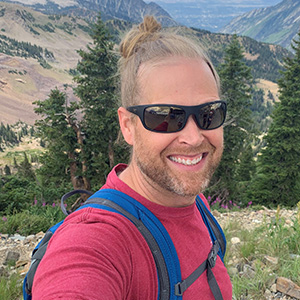Dr. Cody Stropki is a fire ecologist and watershed scientist with considerable knowledge of wildfire and climate dynamics and hazard mitigation including over 20 years of professional and academic experience. His work is concentrated on understanding the complex interactions climate change has on wildland and urban ecosystems with a concentration on wildfire risk management and mitigation, post-fire restoration and recovery, and ecosystem modeling and monitoring. He has authored or coauthored more than 22 technical and peer-reviewed publications ranging in topics from wildfire effects on natural resources to potential impacts on endangered fish species from river augmentation. Cody has called New Mexico and the greater SW home for the past 22 years and lives in Sandia Mountains with his wife Lyla, daughter Sally, and pupster Ivy.
Climate change over the past decade has occurred at a faster pace than predicted and is impacting the natural fire ecology of ecosystems across the globe. Rising temperatures, unpredictable winds, and extended periods of drought are resulting in a longer if not year-round fire season. The changing climate patterns are contributing to increased fire size and severity leaving larger proportions of the burn scars with high severity impacts. The southwestern United States is in a region that is projected to continue to become hotter and drier which will further alter fire regimes and the post-fire environment. This talk will discuss how the impacts of a changing climate are creating challenges and opportunities in the pre- and post-fire environment. We will discuss building resiliency into our ecosystems with pre-fire mitigation to understanding how climate change is impacting the successional patterns of vegetation recovery and how we should be looking at restoring/rehabilitating these damaged ecosystems.

Support the people who manage our natural areas and protect biodiversity in perpetuity.